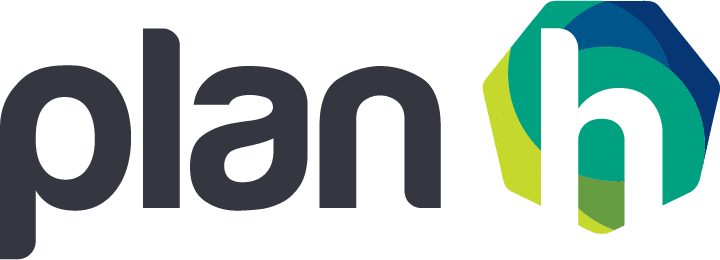This page provides answers to frequently asked questions (FAQs) about PlanH’s current grant cycle. For full details about the 2023 PlanH Grant, please see the Application Guide or attend our info session on March 22. For information on past grant cycles, or if you have additional questions please contact grants@planh.ca.
2023 Community Connectedness & Healthy Public Policy Grants
Eligibility criteria and requirements |
|
Eligible projects and activities |
What can grant funds can be spent on?Please see the section 4.4 of the application guide for a list of eligible/ineligible expenses. Can we use this funding for capital costs?This funding can be used towards capital costs that amount to less than 40 per cent of the PlanH funded amount. Some examples of capital costs are computer equipment, furnishings, tools, or fixtures. More budget details can be found in section 4.4 of the application guide. Can the PlanH Healthy Communities grants be used to fund consultant fees?The grant can be used to fund consultant fees; however, communities must demonstrate how the consultant will engage local or Indigenous government and build the capacity of the government for the future. PlanH grants also include in-kind support from BC Healthy Communities staff, which may meet some projected needs for consulting services. Please contact us at grants@planh.ca for more information on the types of support we can provide. Examples of Eligible Consultant Costs:
Examples of Ineligible Consultant Costs:
Can the grants be used to fund partnership work that is ongoing?Yes. However, applicants should show how the grant will deepen and strengthen the existing partnership work. Can the grants be used to fund work that has already taken place?No. The grant funds are only eligible for upcoming, unfinished work. The work can be something that is ongoing and doesn’t have to be a new project or program, but cannot be used for already-completed work or expenses that have already been incurred. Changing policy takes time. Can our Healthy Public Policy stream application focus on one part of a policy change process?We recognize that our grants are small in comparison to what it takes to update, evaluate, or create a new policy from start to finish. The PlanH grants can be used to supplement existing projects or initiatives, support the inclusion of an equity lens and commitment to equity through things like honorariums and formal recognition of time and effort required to participate in engagement activities etc. It can also be used to support a single phase of a project and/or be stacked with other funding sources. |
Deadlines and adjudication process |
What is the deadline to apply?Applications will be accepted until midnight Pacific Time on May 1, 2023. What are the criteria for assessing applications?All applications are screened for eligibility as defined in the grant application guide. Applications will be assessed by our adjudication committee on the connection between project activities and objectives, as well as proposed expenses. Projects which demonstrate equity, collaboration, sustainability and an upstream approach will be favoured. Will the grants be divided equally amongst the health authority regions?While we do aim for a balanced representation from communities across the province, we also give priority to the overall quality of each application. The grants will be divided amongst the health authority regions, although it is not certain that each health authority region will have the same number of successful applicants. Note: This year for the first time, through a partnership with Vancouver Coastal Health Authority (VCH), we are pleased to be able to offer additional grants in the Healthy Public Policy Stream for projects in the VCH region. See the Vancouver Coastal Health provides additional grants in the Healthy Public Policy stream section below for more information. Is it possible to meet with BC Healthy Communities prior to submitting an application to ensure that the application has the greatest chance of success?Yes. While in-person meetings are not possible, communities are encouraged to contact BC Healthy Communities Society to discuss potential ideas prior to submitting an application. For further information, please contact grants@planh.ca. What are the chances of a small community getting a grant? We can’t generally compete with larger communities and organizations.PlanH has a strong history of providing grants to rural and small communities. We will be considering equity issues such as community size and geographic region when reviewing applications. We encourage all communities that meet the funding criteria for these grants to apply. We need time to submit a staff report to council for their approval and that is a four to six week process. Any chance of the deadline being extended?No. The application window for PlanH grants is set at a minimum of six weeks in order to address this potential issue. In order to maintain our grant timelines, we are unable to offer extensions. |
Multiple applications, future funding, and past PlanH grant recipients |
Can communities apply for both streams of the 2023 PlanH Healthy Community Grants (the Community Connectedness Grant and the Healthy Public Policy Grant)?Yes. Communities can submit an application to both streams. However, depending on the volume of applications, communities are unlikely to receive funding for both areas.
|
|
Will I need to submit a final report?Yes. If you are successful in receiving a PlanH Healthy Communities grant, you will need to complete a baseline report at the start of the project, and a final report upon completion of your project. Grantees may complete their final report once all received funds have been spent and all activities outlined in the project work plan which are not tied to holdback funds have been completed. If you anticipate not being able to submit a final report on time for any reason, please contact grants@planh.ca. Examples of past reports: 2021 Community Connectedness; 2021 Healthy Public Policy. Our team is committed to incorporating culturally-safe practices into our evaluation approaches. For example, interview-based final reporting can be arranged upon request.
|
Vancouver Coastal Health provides additional grants in the Healthy Public Policy stream |
My Healthy Public Policy grant application is for an Indigenous or local government in the Vancouver Coastal Health (VCH) region. Is there a separate application for the funds through this partnership?No. VCH is funding additional grants of up to $15,000 within the existing PlanH Healthy Public Policy stream. No additional application is required. Applicants should ensure they indicate they are within the VCH health region in their application. |
COVID |
How should my proposal address changing COVID requirements?We understand that proposed activities—particularly public engagement and social gatherings—require a degree of flexibility in order to adhere to changing public health guidelines and ensure safety in your community. You do not need to provide a detailed COVID plan with your proposal. However, if changes to your plans are required due to COVID, please email BCHC at grants@bchc.ca to discuss the changes. See also Reporting Obligations and Financial Processes: What if there are changes to my project. Our community has been badly hit by COVID. Despite loosening of public health restrictions, we are still unable to hold in person activities. Is this a problem?Community safety is the top priority, and we understand that COVID impacts have not been felt equally. We welcome applications that consider the needs of all participants and adapt project activities to ensure safe and equitable participation. Why is the issue of community connectedness important right now?Isolation and quarantine have been found to have serious impacts to the resiliency of communities, with symptoms including depression, poor concentration and indecisiveness, deteriorating work performance and reluctance to work, and post-traumatic stress disorder (PTSD). Concerningly, many studies report these symptoms to be long-term, especially if the period of isolation is long. If unchecked, this may result in considerable social and economic impacts for communities. Further, long-term isolation and loneliness can have a devastating impact on individual and community health, with health impacts on par with well-established mortality risk factors such as physical inactivity, and lack of access to health care. It’s important for community members to have hope and joy in a time of crisis. We’re encouraging communities to be proactive in responding to these impacts by developing community connectedness strategies and/or projects to support resiliency and connection during the peak of this pandemic, as well as afterwards as community members seek to return to their normal daily routines. What is the role of healthy public policy during the remainder of this pandemic and beyond?Healthy public policies are strategic actions led by a public authority with the aim of increasing health and well-being within the population. There’s no doubt that this pandemic continues to challenge communities to find resourceful ways, directed by policy, of promoting health and well-being. It is also clear that COVID-19 has amplified, rather than created, many of the health and well-being concerns communities encounter. Even in the face of COVID-19, our Healthy Public Policy grant stream encourages communities to create or amend policies by looking upstream in order to create environments that encourage good health long after the pandemic. In order for a public policy to be a healthy public policy, it is also essential that it be equitable. It is well-documented that the COVID-19 pandemic has disproportionately impacted groups in our communities. Governments need to stay vigilant in ensuring that policies are constantly evaluated and incremental changes are made so that inequitable consequences are remedied. In creating, adopting and evaluating a public policy through a health equity lens, local and Indigenous governments can create long-term positive impacts for all community members. |
Key terms and ideas |
Healthy Communities approachDo you have more information about the Healthy Communities model?The Healthy Communities approach recognizes that the built, environmental, social and economic environments play a large role in determining health and well-being. These factors, called the social determinants of health, are outside of personal control and outweigh the impact of individual choices. Healthy communities make it easier for people to lead healthy lives through community design, planning and health promotion. You can learn more about the Healthy Communities approach on PlanH.ca. Our jargon buster provides an introduction to key Healthy Communities terms. Target PopulationThe application asks if there is a “target population” for the project. Can you give me an example?We know that not all populations in a community experience equal health status, and a range of factors and community conditions such as social, economic and physical environments can influence the health and well-being of different sub-populations. Each community is unique and may have identified particular populations for which targeted action is a priority to improve their health status. For example, target populations may include seniors, Indigenous populations, immigrants and newcomers, youth and children, low-income individuals, LGBTQ, and/or those with mental health challenges. Upstream and Equitable Public PolicyOur community is interested in applying for the Healthy Public Policy stream, but we are struggling to understand what upstream and equitable public policy looks like. Do you have any ideas or resources?Absolutely! There’s a list of healthy public policies other communities have adopted on the Healthy Public Policy page of the PlanH website. Beyond the policies in these examples, we highly encourage local and Indigenous governments to focus on improving the equitability of policy in your community’s established priority areas. Communities can do this by:
BCHC SupportsThe grant materials mention that successful applicants will receive access to resources/supports from BC Healthy Communities. What is included in this portion of the grant?These supports are in-kind customized support from our facilitation team at BC Healthy Communities; therefore, they are not paid out in cash. These supports will be personalized to the unique needs of each group and will be provided on a case-by-case basis. Please see section 4.5 of the application guide for more details on the kinds of supports available. |




 Who is eligible to apply for PlanH grants?
Who is eligible to apply for PlanH grants?